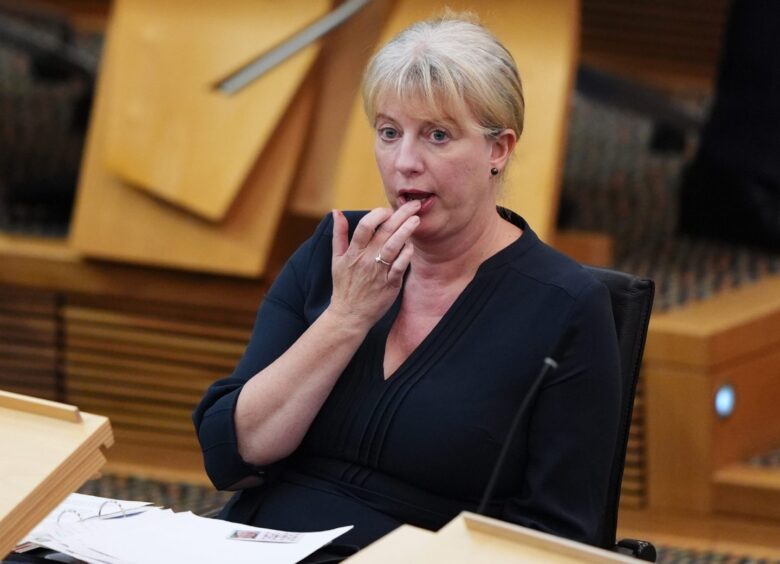
The Scottish government has announced plans to treble its investment in offshore wind to £150 million in 2025, finance secretary Shona Robison announced in Wednesday’s budget.
Addressing parliament in Edinburgh, she said that the money will help leverage private investment of £1.5 billion in Scotland’s infrastructure and manufacturing facilities.
“Capital funding of £150m will accelerate our investment to support the offshore wind sector underlining our commitment to invest up to £500m over five years,” Robison said.
“Critical to economic growth is capital spending and investment on infrastructure,” she added, noting that capital spending will total over £7b in the budget.
“A green reindustrialisation of Scotland is our ambition. We will use that capital funding to make a significant strategic decision to invest in this nation’s green future.”
The Energy Industries Council (EIC) called for targeted incentives to attract investment and enable the supply chain to meet these ambitious goals.
EIC head of external affairs Rebecca Groundwater said: “With a significant pipeline of projects expected to come online in the 2030s, it is crucial that government support ensures smoother, faster permitting processes, strengthens the readiness of ports, vessels, and turbine manufacturers, and encourages partnerships between developers and the supply chain.”
Robison also announced plans to create a Scottish government offshore wind sector in Aberdeen.
“Aberdeen is perfectly placed to become a global hub for green energy and to support this we will establish a Scottish government hub for offshore wind in the northeast to provide an additional route for industry to engage with our teams,” she said.
ETZ Ltd chief executive Maggie McGinlay praised the move, saying it was a “positive step toward the North East of Scotland positioning itself as an internationally recognised renewables energy cluster, particularly for offshore wind.
“We will work closely with the Scottish government to ensure this hub and the additional £150m earmarked for offshore wind in the coming year are channelled effectively.”
Long-term future
The budget also laid out plans to provide Grangemouth with £7.8m to secure a long-term and sustainable future for the industrial cluster.
Robinson had previously warned that revenues from the mammoth ScotWind round of offshore wind projects could be appropriated.
This could have seen as much as £460m used to pay for some of the measures set out in the budget.
However, Robison announced in the budget that the funds would not be used in this financial year.
“Instead, I’m able to deploy over £300m of ScotWind revenues in 2025/26 for exactly the kind of long-term investment that should be spent on,” she announced.
“This £300m will deliver substantial investment in jobs and in measures to meet the climate challenge. All of it an investment in the long-term success of our nation.”
Supply chain jobs
In addition, Robinson announced £25m of investment “to support the creation of new jobs in the green energy supply chain here in Scotland”.
She added that “£300m will be invested in upgrading heating and insulation,” aimed at supporting over 20,000 households to save up to £500 a year on their energy bills.
“This money serves two hugely important purposes it helps us to reduce our carbon emissions while tackling fuel poverty. Lower emissions and lower energy bills that’s an investment worth making.”
The Scottish and Northern Ireland Plumbing Employers’ Federation (SNIPEF) warned that these plans risk being derailed by a critical skills shortage.
SNIPEF chief executive Fiona Hodgson said: “Our latest state of trade survey reveals that 65% of plumbing and heating businesses are struggling to find skilled professionals in their area. Without investment in training and upskilling, the plumbing and heating profession cannot deliver the housing and green energy projects Scotland urgently needs.
Heat pumps and other renewable technologies, for example, require a skilled workforce, and this cannot be achieved without meaningful investment in further education.”
There is also £15.9m for the just transition fund for the North East and Moray intended to support jobs, innovation and secure the workforce needed to develop renewable energy jobs.
However, North East MSP Douglas Lumsden expressed fears over the amount allocated as it falls short of the full £500m originally earmarked.
“It will take decades to stump this up at the current rate,” he said.
“And of course, it comes after the shameful abandonment last year of the £80m Carbon Capture Fund, with no sign of it next year either.
“Thousands of jobs across the North East are being lost while this devolved government defers, dithers and delays.”
Recommended for you

